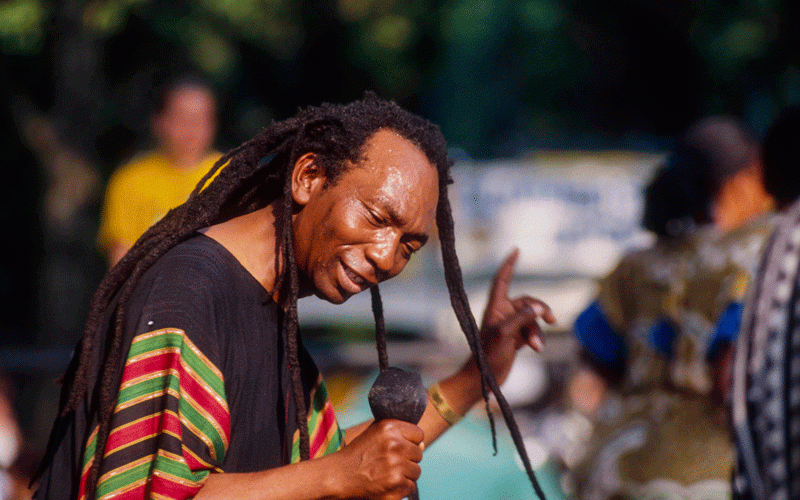By Hugh McIntyre / Rex Mphisa
Bob Marley’s Legend — the compilation that includes the reggae superstar’s most famous tunes and is credited to both him and his backing band the Wailers — is one of the most successful albums of all time in the world.
It’s the set that keeps the late icon on the charts week after week, as it continually sells thousands of copies every frame.
Marley who performed at Rufaro Stadium soon after Zimbabwe was declared independent on 18 April 1980, continues to be respected in Zimbabwean circles and his sound played as if sung yesterday.
On that night in Harare, Marley’s Reggae music tore across Harare and could be heard as far as Glen Norah as he danced the night away to celebrate the end of minority rule.
Although he came on invitation Bob, whose real names were Robert Nesta Marley, funded his trip.
Bob Marley brought 21 tons of equipment, including a full 35,000-watt PA system and backline equipment, to Zimbabwe for the country’s Independence celebrations in April 1980.
He paid for a Boeing 707 jet to transport the equipment from London for the free performance which left a lasting mark on Zimbabweans no other musician in the world can claim today.
While the exact duration of his stay is not specified, his visit focused on the Independence Day event, where he performed for a crowd of approximately 100,000 people.
He also made a trip to Mutoko where he met and shared with some freedom fighters what he said was “good herb which made freedom fighters disappear during war with the enemy”.
His visit to Zimbabwe heavily influenced local music, inspired other international artists and made Zimbabwe a music concert destination in Africa where he opened doors to many artist

Misty In Roots, Aswad, Culture, King Sounds and the Israelites, Ijahman Levi, UB 40, Gregory Isaacs who brought along Chicken Chest, Eddie Fitzroy, Eric Donaldson, just to name a few, are some of the reggae bands that followed Marley’s footsteps to Zimbabwe.
Their influence on local musicians was massive and some artists ended up in big concerts while it also saw the creation of numerous reggae bands.

Famous artists like Thomas Mapfumo, John Chibadura, the Transit Crew all did some reggae pieces while one of the most popular hits was Reggae Sounds of Africa from the Pied Pipers.
Back to the high Priest of Reggae as Zimbabwean DJ Mike Mhundwa used to call him on his famous Session Saturdays, it turns out that one of Marley titles is not enough to satiate demand among music lovers worldwide.
This week, another one of his albums Exodus, returned to the charts, helping the pioneering singer-songwriter double up on the tally and even reach a special milestone at the same time.
Marley’s Exodus reenters the Reggae Albums chart this week.
The full-length, credited not just to Marley as a soloist but also the Wailers, reentered the United States of America’s Billboard’s ranking of the top-performing reggae-only full-lengths and EPs (extended plays) at No. 10.
Exodus has now spent two years on the Reggae Albums chart. The set makes it to 104 frames as it returns to the roster in tenth place.
Marley bookends (being on first and last) the Reggae Albums chart this week, as Exodus reappeared at No. 10 while Legend is steady at No. 1.
The latter project has spent 297 weeks on the list, and has only vacated the throne once. That extraordinary streak makes Legend one of the longest-running number ones on any list in American history.
Legend is such a dominant force that it has even managed to keep several of Marley’s own projects from hitting the top spot on the Reggae Albums chart.
Exodus has climbed as high as No. 3, but has never been able to supplant the massively popular compilation.
RIP Marley, the world loved you.


